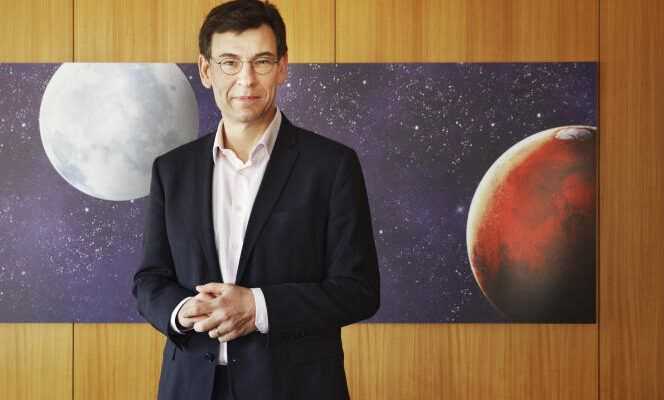Appointed president of the National Center for Space Studies (CNES) on April 14 in the Council of Ministers, Philippe Baptiste did not have time to give a personal touch to his office. However, a beautiful gift of welcome awaits him, with the departure for the International Space Station (ISS) of Thomas Pesquet, scheduled for Friday April 23, which symbolically highlights French space. Even if he comes from the digital world and sees above all the future of space in applications derived from satellite data, this 49-year-old computer engineer readily recognizes that human spaceflight “Transcend the conquest of space. There is, moreover, at the moment a renewed interest in the presence of man on the Moon with the American Artemis program, with the trip to Mars as a backdrop ”.
The new CNES boss insists on the experience and know-how of France and Europe, with the European Space Agency (ESA), and has no doubt that they will participate in the adventure. “For Thomas Pesquet, he continues, this second flight and the fact that he will be commander of the ISS there, all this positions him well for a future lunar mission and we will be there to help him in this great quest. “
The one who was chief of staff to the Minister of Higher Education and Research Frédérique Vidal, from 2017 to 2019, and one of the initiators of the Parcoursup platform, is aware that he is taking up his post at a moment when the space world is undergoing profound upheaval. And this with the energetic push of the actors of “New Space”, these private companies newly arrived in the sector and which shake up the codes and the costs.
“Invest heavily”
The best known is the American SpaceX, Elon Musk, which ensures the transfer of Thomas Pesquet to the ISS using his Falcon-9 rocket and his Crew Dragon capsule – both reusable. While recalling that SpaceX has benefited from technologies and significant funding from NASA, Philippe Baptiste acknowledges that“We must be inspired by his bets, his successes and failures, from the fact that Elon Musk has been able to integrate into space innovations and agile techniques that come from the world of digital and low cost industrial”.
“Preparing for the future”, this is therefore the roadmap that the new leader has set for himself in this context of great upheaval. “The sector has a major economic impact, with a big leverage effect, and the spatial share in the GDP will explode, he predicts. All the great powers are investing massively in space: the United States is doing it and China is devoting itself to it at least as much as Europe. We Europeans therefore need to reflect on our spatial ambition. We have incredible historical successes, like Ariane, we have two champions, Thales Alenia Space and Airbus, whose telecommunications satellites represent 60% of the world market and Europe is a leader in the field of Earth observation. ”
You have 57.84% of this article to read. The rest is for subscribers only.
